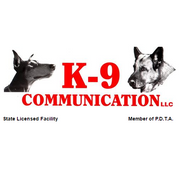
Dear Gus,
Recently my brother-in-law had a late night emergency with his dog and lost valuable time finding a pet emergency room. His dog subsequently died. I thought most veterinary practices had someone on call for emergencies, and now realize this is not true. How can I know what the best action is in emergencies?
Thank you for the question,
I can speak to this personally, and give you what I now have as a checklist. My dog Oliver died recently on his 10th birthday from a burst spleen. Oliver was a dog that wasn’t sick a day in his life, and it was one of the most sudden things I’ve ever witnessed. He had- been playing with the water hose, (a favorite pastime), then he passed time with me while I taught a class. After class, about 6:45 p.m., he got off the couch to go upstairs with me and have his dinner. He never made it up the stairs; he collapsed on the floor and was in surgery from about 11 p.m. until almost 3 a.m. He was transferred the following morning to his regular veterinary hospital. He improved steadily through the day, then, the call came! He passed away. My wife and I have been absolutely devastated over this sad course of events. First off, you need to recognize common emergencies, and have a plan in advance on what to do if it is after hours for your veterinarian. There are a number of emergency hospitals in the area. One thing you should be aware of is that not all of these are open 24 hours a day. If the hospital closes during normal business hours, you will have to take your pet to your regular veterinarian when the emergency hospital closes for the day. This could mean transporting an animal that has just had surgery to another setting. So, make sure that you understand the hours of operation of any emergency hospital you choose. Next, unless you are already very familiar with the location of the emergency hospital, print out the directions and keep them in a handy location. You don’t want to be driving around lost with a very sick pet in your car. You might also make a planned visit to the emergency hospital and speak to veterinarians and staff there to make sure you are comfortable with their credentials and “bed side manner”. Also, make sure you understand the payment policies for the hospital you chose. They may have a policy that you sign a consent which lists out a maximum charge (which I’ve seen to be in the $10,000 range). You may need to guarantee payment up front in the form of either cash or credit card. If that’s the case, make sure that you bring a credit card with a limit high enough to cover these estimated maximum charges. And, as hard as this sounds, you need to be sure to understand the likelihood of your pet surviving emergency surgery and the dollar cost of the surgery. I have found emergency care to be about triple the cost of planned surgery, so don’t use the cost of care at your usual veterinarian as a guesstimate of the cost of emergency care. Lastly, pet health insurance is a growing industry. If you are considering this, make sure you read the detail of the policy and understand any limitations in coverage versus what routine, emergency or chronic care is covered.
-Gus
About the Business
Have a question? Ask the experts!
Send your question

